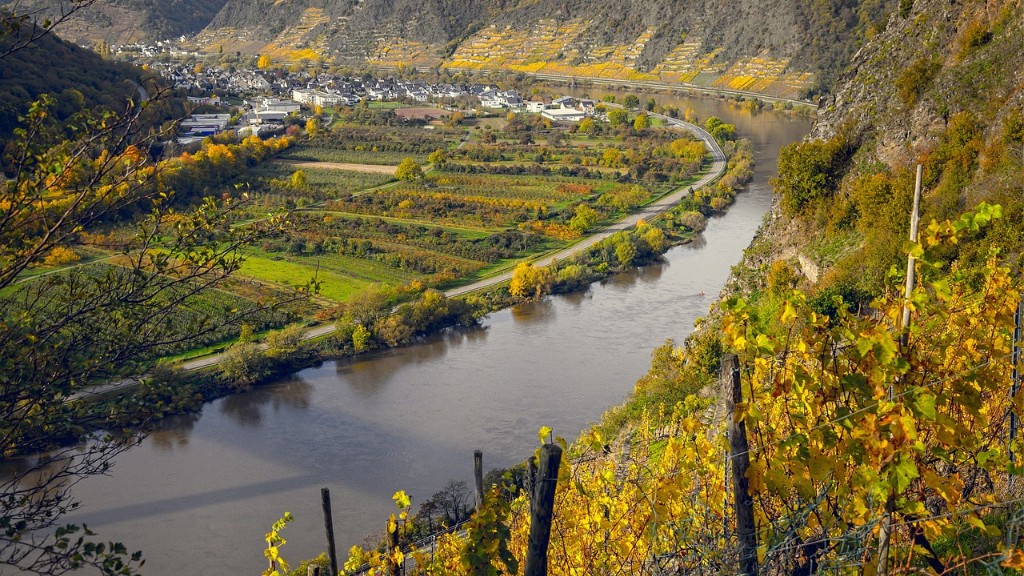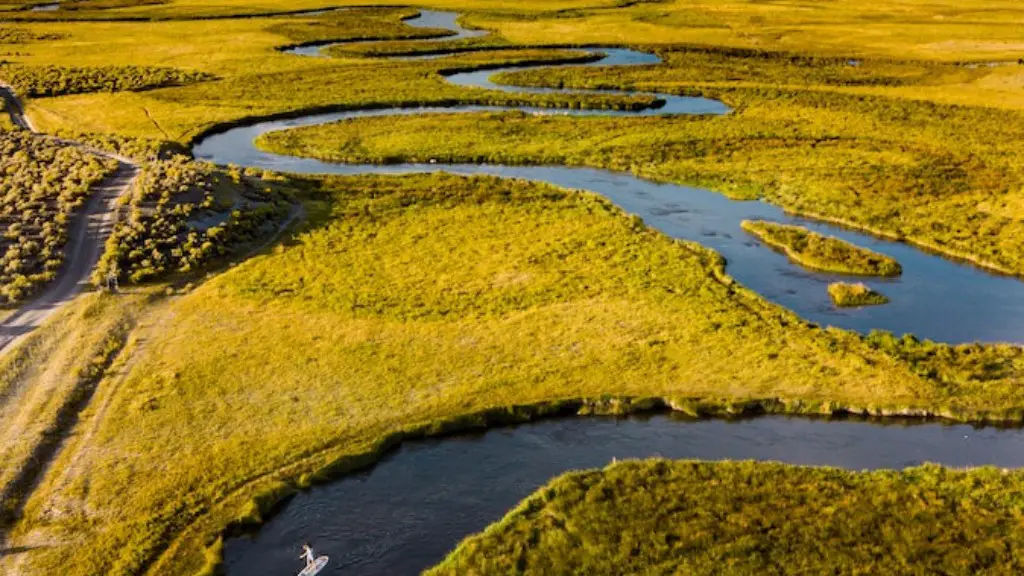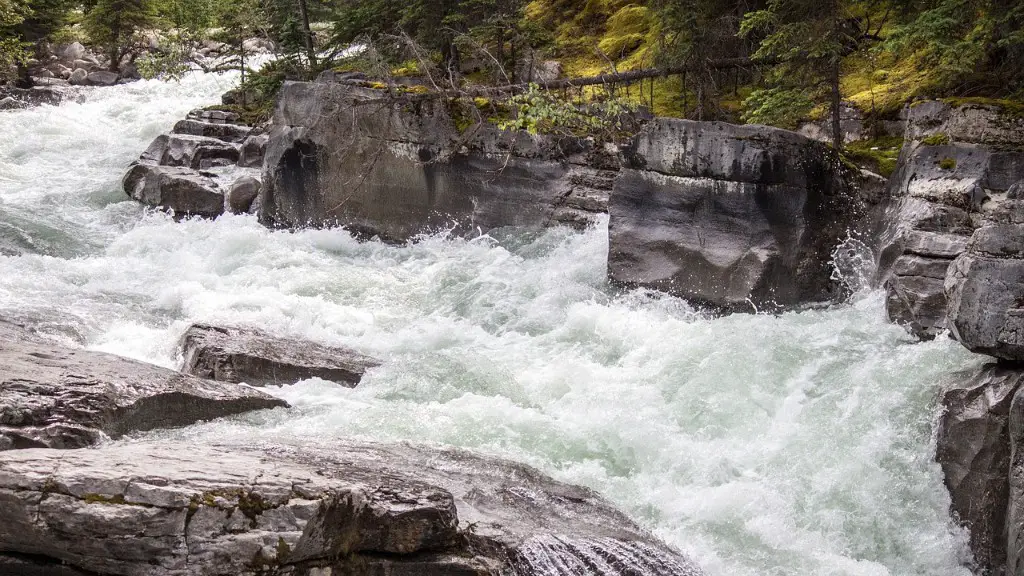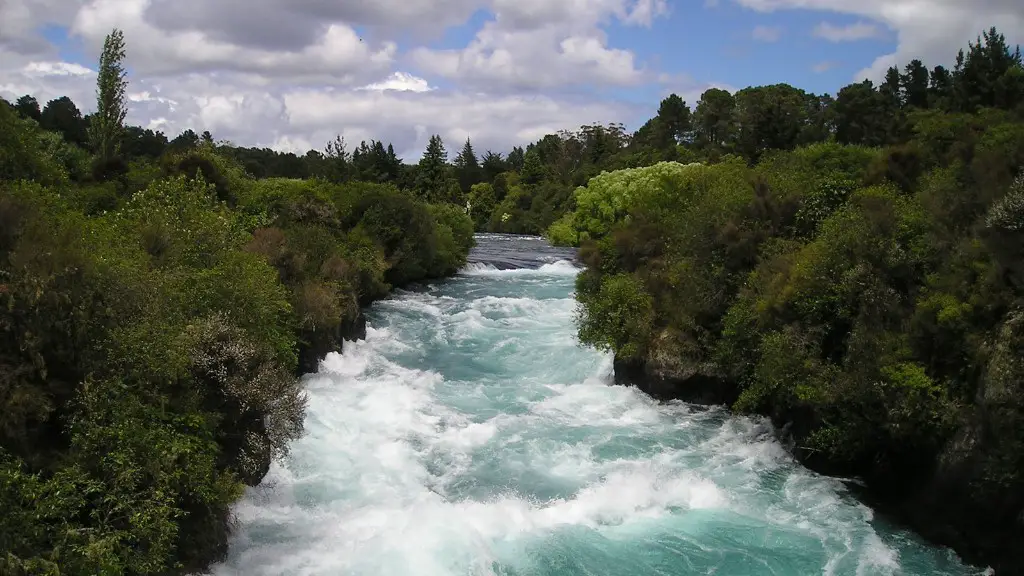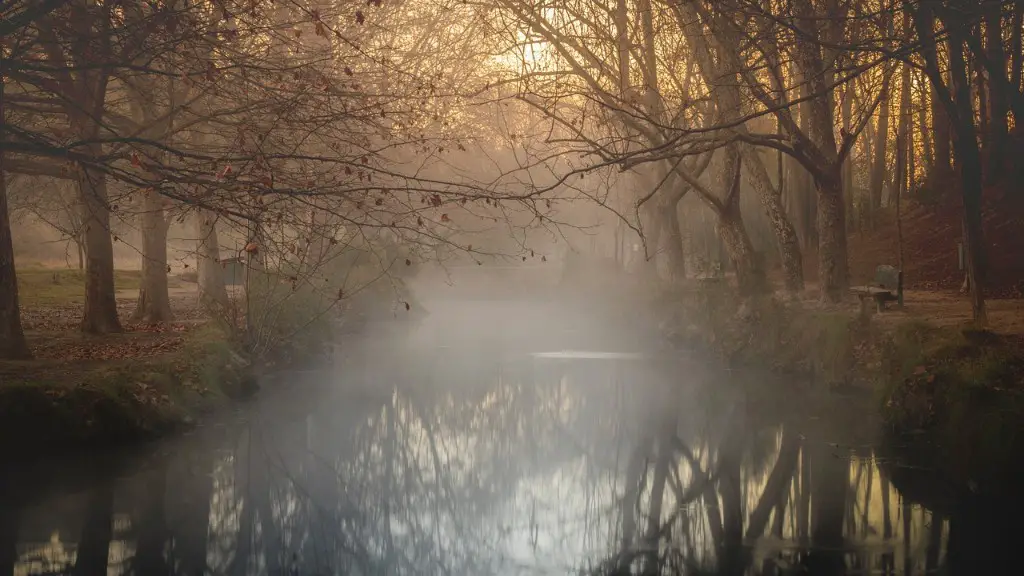Known as the Bayou State, Louisiana is home to the majestic Mississippi River, one of the longest rivers in the world. The Mississippi River is the fourth largest river in North America and it is one of the most important lifelines of the region. It’s well known for its active shipping and cruising industry, as well as its recreational activities like fishing and camping. But what’s most interesting about the Mississippi River is how it runs through Louisiana: a tale of geography, industry, and culture.
Louisiana has a surprisingly complex relationship with the Mississippi River. On the one hand, the river is an important route for commercial goods and travelers coming from the Midwest. On the other hand, the river is a potential danger in the form of flooding, putting thousands of lives and properties in danger every year. Let’s take a look at the most important aspects of the Mississippi River in Louisiana.
The Mississippi River is a vital part of the transportation infrastructure of Louisiana. It is used by recreational and commercial vessels, containers, and drilling vessels every day. Shipping companies make extensive use of the Mississippi River as it is economical, efficient, and convenient. Shippers send goods upriver from the port of Louisiana to the Midwest and back, while container ships ply the coast between the Gulf of Mexico and ports in Louisiana. The river is also an important route for the oil and gas industry, as it is an efficient way to transport goods from the Gulf of Mexico to the port of Louisiana for export or for use in Louisiana.
The Mississippi River is an important part of the economy and culture of Louisiana. Fishing and hunting are popular activities on the river, and there are many historic sites to visit. The river offers a beautiful backdrop for camping, canoeing, and swimming. The area is dotted with small towns and villages that were built as ports in the early part of the 19th century, and many of them are still populated today.
The Mississippi River has also been a source of danger for Louisiana, as the river can quickly swell and cause flooding. Over the years, Louisiana has seen devastating floods, and the state has taken steps to try to mitigate the potential damage. Flood protection levees have been built, and new zoning laws have been enacted to help protect people and property from floodwaters.
The Mississippi River is an important part of the history and culture of Louisiana, and it is a lifeline for the economy of the state. Its function as a conduit for goods and travelers will ensure its continued importance for years to come.
The Recreation Value of the Mississippi River in Louisiana
The Mississippi River is an important part of the social and recreational life of Louisiana. From camping and fishing, to the many historic sites, the Mississippi River is a source of enjoyment for people all over the state.
Fishing is a popular activity on the river, and there are many species of fish to be found: bass, gar, catfish, carp, and more. Many people come to Louisiana to fish and hunt on the Mississippi River.
The river is also a popular destination for campers. There are many state parks, national parks, and private camping grounds along the river, and the camping experience on the Mississippi River is a unique one.
The Mississippi River also contributes to the cultural life of Louisiana, as it is dotted with many museums and historic sites. From the French Quarter in New Orleans to the many Civil War battlefields, there are many fascinating places to explore.
The Mississippi River is an important part of life in Louisiana, and its recreational opportunities contribute to the culture and economy of the state.
The Economc Value of the Mississippi RIver in Louisiana
The Mississippi River is an important part of the economy of Louisiana. The river is an important source of revenue for fishing, hunting, and camping, but it is also an important shipping route for goods and services.
The river is an important route for shipping from the Midwest to the port of Louisiana and beyond. The river is a convenient way for oil and gas companies to move goods to the port of Louisiana and to the Gulf of Mexico. The river is also an important route for tourists, with many cruise ships, container ships, and recreational vessels making their way up and down the river.
The river is also important for the forestry industry, as it is an important shipping route for wood and other products. The river also serves as a lifeline to many remote communities in Louisiana, providing them with access to goods and services.
The Mississippi River is an important part of the economy of Louisiana, and its role as an important commercial route ensures its importance for years to come.
The Impacts of Climate Change on the Mississippi River in Louisiana
The impacts of climate change on the Mississippi River in Louisiana will be significant. As global temperatures rise, the river is likely to become more volatile, causing droughts, floods, and other extreme weather events.
The effects of climate change have already been observed in Louisiana. The river has dried up in some areas, while in other areas it has swollen to dangerous levels, causing flooding. This can have a devastating impact on people, property, and businesses, as it can cause widespread damage and displacement.
Climate change is also likely to affect the transportation infrastructure of Louisiana. The river is an important shipping route for commercial vessels, and any changes to the river could have a significant impact on the transportation industry. In addition, extreme weather events could lead to closures of ports and bridges, impacting both commercial vessels and recreational boaters.
Climate change is a serious problem, and it has the potential to impact the Mississippi River in Louisiana in serious ways. As temperatures rise, the river is likely to become more volatile, leading to increased risks of flooding, drought, and other extreme weather events. It is important that steps are taken to mitigate the effects of climate change and protect the Mississippi River and its people.
Conservation Efforts to Protect the Mississippi River in Louisiana
In recent years, conservation efforts to protect the Mississippi River in Louisiana have been ramped up. The state has taken steps to mitigate the potential damage caused by flooding, such as building levees and enacting zoning laws.
In addition, state and federal agencies have joined forces with local and tribal representatives to protect the river and its surrounding environment. These efforts include the implementation of conservation and management plans, the creation of protected areas, and the restoration of wetland habitats.
In addition, the state of Louisiana has taken steps to promote clean, renewable energy sources in order to reduce pollutants in the river and reduce carbon emissions. This includes increasing the availability of solar and wind energy, implementing energy efficiency measures, and emphasizing the importance of recycling.
Louisiana has taken important steps to protect and conserve the Mississippi River. These efforts are essential for the health of the river and its surrounding environment, as well as the people who depend on it for their livelihoods.
The Tourism Value of the Mississippi River in Louisiana
The Mississippi River is an important source of tourism in Louisiana. From fishing and hunting, to taking river cruises and visiting historic sites, the Mississippi River is an important part of the tourism industry in the state.
The river is home to many popular attractions, such as the French Quarter in New Orleans and the many Civil War battlefields. It is also a popular destination for recreational boaters, as it is an ideal location for camping and water activities. People from all over the world come to visit the Mississippi River, and it is an important source of revenue for the state.
In addition, the river is an important source of revenue for small businesses. Many local businesses, such as restaurants, marinas, and boat tours, rely on revenue from visitors to the river.
The Mississippi River is an important source of revenue for Louisiana and its people. Its role as a source of tourism ensures its importance as an important part of the economy of the state.
